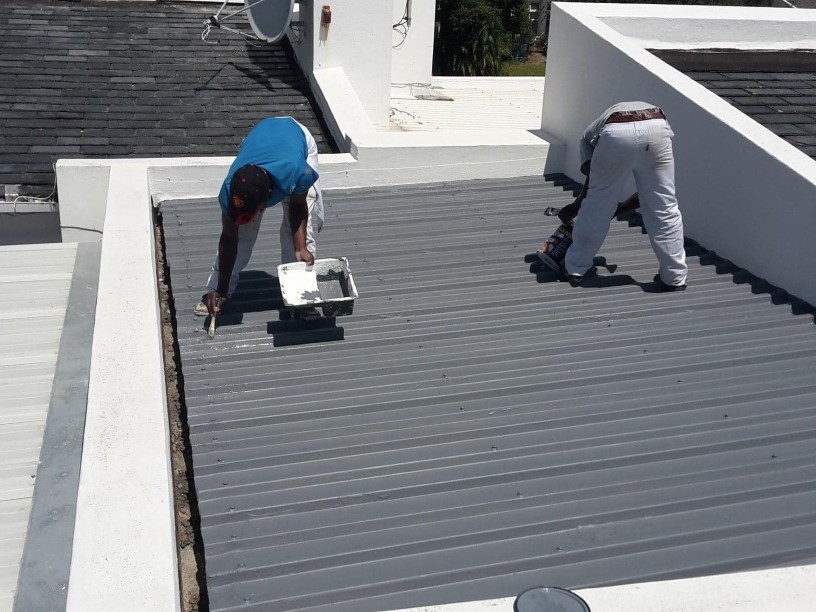Waterproofing is an essential aspect of building maintenance, especially when it comes to custom roofs. Custom roofs are often designed to add beauty and uniqueness to a building, but they can also create challenges when it comes to keeping water out. In this article, we will explore different waterproofing solutions for custom roofs, from coatings to membranes to drain systems, ensuring that your custom roof remains leak-free.

Why is Waterproofing Important for Custom Roofs?
Custom roofs come in various shapes and designs, making them more susceptible to water leakage than traditional roofs. Whether your custom roof has multiple levels, unique angles, or complex curves, water can find its way into the smallest crevices, leading to damage, mold growth, and costly Repairs. Waterproofing your custom roof not only protects the structure but also extends its lifespan, ensuring that your investment is secure.
Types of Waterproofing Solutions for Custom Roofs
When it comes to waterproofing custom roofs, there are several effective solutions available. Let’s explore some of the most popular options:
1. Liquid Applied Coatings
Liquid applied coatings are an excellent choice for waterproofing custom roofs. These coatings are applied as a liquid and form a seamless, protective membrane over the roof surface. They can be applied on various materials, including metal, concrete, and even existing roofing systems. Liquid applied coatings offer exceptional durability, flexibility, and UV resistance, making them suitable for all types of custom roofs.
2. Membrane Systems
Membrane systems are another widely used method for waterproofing custom roofs. These systems consist of a PVC or TPO membrane that is adhered or mechanically fastened to the roof substrate. Membrane systems provide a reliable barrier against water intrusion and offer excellent resistance to UV rays, chemicals, and extreme weather conditions. They are particularly suitable for flat and low-slope custom roofs.
3. Drain Systems
Custom roofs often have unique features that require specialized drainage systems. Poor drainage can lead to water pooling, which can compromise the integrity of the roof and result in leaks. Installing a custom drain system that suits your roof’s design and slope is crucial. This may include the installation of scuppers, downspouts, or internal drains, ensuring proper water flow and preventing water from accumulating on the roof.
4. Roof Maintenance
Regular roof maintenance is an essential aspect of any waterproofing strategy. Custom roofs may require additional attention due to their complexity. Conducting routine inspections, clearing debris, and addressing potential issues promptly can help identify and prevent water intrusion. Regular maintenance also extends the lifespan of the waterproofing system, saving you money in the long run.
Frequently Asked Questions (FAQs)
Q: Can I waterproof my custom roof myself?
A: While simple maintenance tasks can be performed by homeowners, waterproofing a custom roof is best left to professionals. Waterproofing requires specialized knowledge, skills, and equipment to ensure long-lasting protection.
Q: How often should I waterproof my custom roof?
A: The frequency of waterproofing maintenance depends on various factors such as the climate, roof material, and previous maintenance history. It is recommended to consult with a professional to determine the best maintenance schedule for your specific custom roof.
Q: Will waterproofing my custom roof increase its lifespan?
A: Yes, waterproofing your custom roof significantly increases its lifespan. By preventing water intrusion and damage, you can avoid costly repairs and ensure the structure’s integrity over an extended period.
Q: How do I choose the right waterproofing solution for my custom roof?
A: The choice of waterproofing solution depends on various factors such as roof design, substrate material, and budget. Consulting with a professional roofing Contractor can help you determine the most suitable solution for your custom roof.
Conclusion
Waterproofing custom roofs is crucial in protecting the structure from water damage and extending its lifespan. By utilizing solutions such as liquid applied coatings, membrane systems, drain systems, and regular maintenance, you can ensure that your custom roof remains leak-free and resilient against the elements. Remember, consulting with a professional roofing contractor is essential to choose the most appropriate waterproofing solution for your custom roof. Invest in waterproofing today and enjoy a beautiful and worry-free custom roof for years to come.
